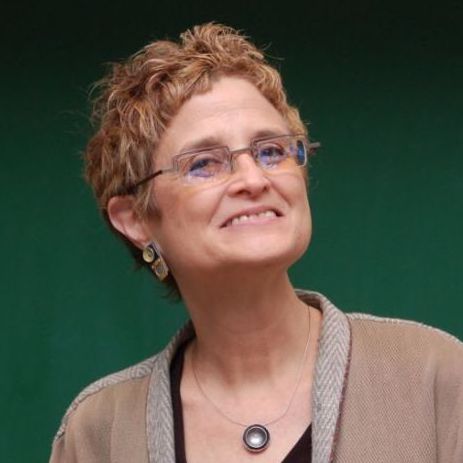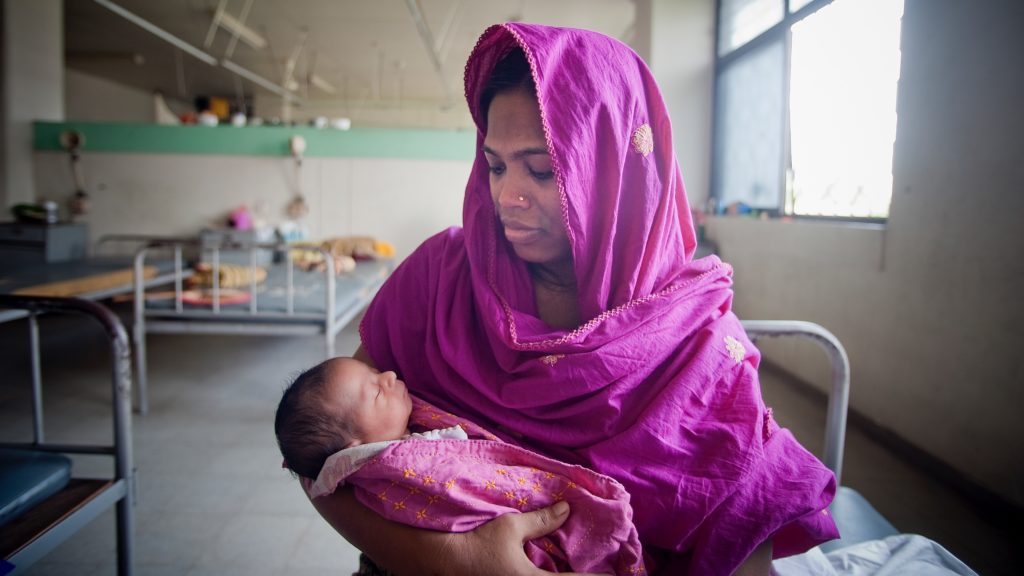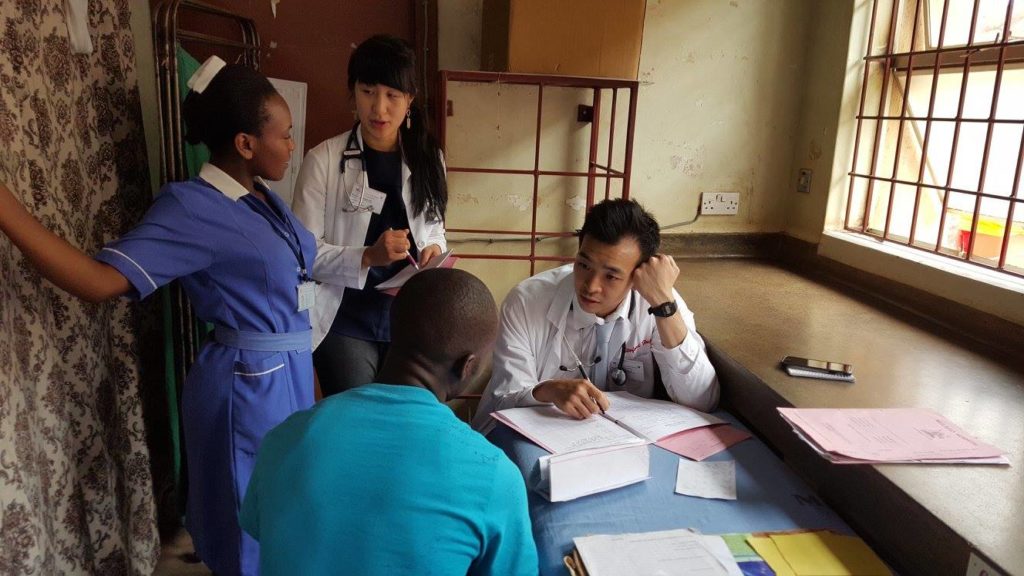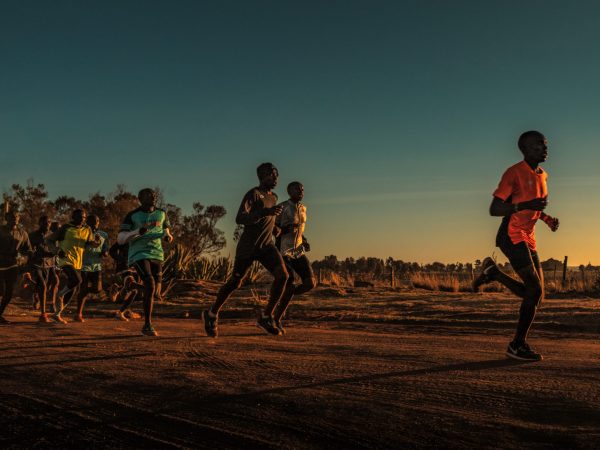Published: 07/07/2021
Dear Global Health Colleagues,
The story of non-communicable diseases (NCDs) is a story of neglect. As you explore the articles and content below, it is a theme that emerges again and again. NCDs not only have their root causes in neglect but also dramatically add to the global burden of disease, with the COVID-19 pandemic highlighting the co-morbidity NCDs can add to infectious diseases.
The result is nothing short of tragic: NCDs, such as obesity, hypertension, and cardiovascular disease, are chronic and often long-term diseases that generally result from genetic, physiological, environmental, and behavioral factors. They affect the most vulnerable in greater numbers and are responsible for 71% of deaths around the world, roughly 41 million people a year. According to the WHO, “each year, more than 15 million people die from a NCD between the ages of 30 and 69 years; 85% of these ‘premature’ deaths occur in low- and middle-income countries.” Without taking quick action to stymie these insidious chronic diseases, we will remain far off track from achieving the health targets of the UN’s Sustainable Development Goals.
What is encouraging however is that basic solutions for many NCDs are already understood — many of these solutions are already common practice in wealthy nations around the world — and the impact we stand to have by implementing them globally is enormous. However we must call out the food industry, tobacco multi-nationals, and socioeconomic determinants that result in inequitable access to exercise and nutritious foods. My colleagues at Stanford Medicine, many of whom I am proud to call Global Health Faculty Fellows, know this well and are working hard to implement and better understand the many “low-hanging fruit” available to global health practitioners.
Dr. Latha Palaniappan remains a leader in global diabetes, especially in Asia, where 60% of the world’s diabetic population resides. Dr. Andrew Chang continues to make strides in global cardiology even as a cardiology fellow and PhD student, doing important work in Africa that is detailed below in our recent feature article on his research. Dr. Ami Bhatt, part of our center’s core leadership, has devoted her career to oncology in under-resourced settings, a path that has taken her most recently to Nigeria where she is coordinating a major cervical cancer educational campaign — a story that is also the subject of one of our featured articles below. I am also grateful that Herb Riband, an NCD expert and one of our senior advisors based in Geneva, penned this month’s “Letter from our Global Colleagues.”
Chronic diseases are a major barrier to global health, but there is also so much that can be easily achieved. I invite you to explore the articles curated below and find hope and solace in the progress being made at Stanford and beyond.
Sincerely,
Michele Barry

Drs. Ben and A. Jess Shenson Professor of Medicine and Tropical Diseases
Director of the Center for Innovation in Global Health
Senior Associate Dean for Global Health, Stanford University


Dr. Ami Bhatt Thinks Cancer is Worth Fighting Everywhere
Through her NGO Global Oncology, Global Health Faculty Fellow Dr. Ami Bhatt is fighting cancer in places it has been historically ignored. Starting with a national campaign against preventable cervical cancer in Nigeria, she is on a mission to bring recent cancer advancements to every corner of the globe. Read our feature article here.

Announcing our 2021 Global Health Seed Grant Awardees
For the past 9 years, Stanford’s Center for Innovation in Global Health has been providing funding to early-stage research projects in global health with our annual round of Global Health Seed Grants. Now we are proud to announce seven new seed grants, each of which tackles an emerging threat to global health, and each with the potential to one day save human lives. Read our feature article here.

Global NCDs
- Big food and the World Health Organization: a qualitative study of industry attempts to influence global-level non-communicable disease policy (6/11/21): One reason for the neglect of NCDs is because of their close ties to big food, tobacco, and alcohol — this article demonstrates some of the influences of the food industry on NCD policy at the WHO.
- An Investment Case for the Prevention and Management of Rheumatic Heart Disease in the African Union 2021–30: a Modelling Study (5/10/21): Highly relevant to our Five Questions feature article this month with Global Health Faculty Fellow Dr. Andrew Chang, this piece presents a dire case for investment in rheumatic heart disease in Africa, where it continues to be a major health burden.
- The Need to Expand the Framework of Environmental Determinants of Cardiovascular Health From Climate Change to Planetary Health — Trial by Wildfire (5/24/21): In this commentary, which I collaborated on with my colleagues, we draw the increasingly relevant connection between cardiovascular disease and planetary health.
- The Lancet Women and Cardiovascular Disease Commission — Reducing the Global Burden by 2030 (5/16/21): A new Commission from the Lancet highlights the inequitable gaps and stagnation of progress for the leading cause of death in women.
- Health and Economic Impact of Air Pollution in the States of India: the Global Burden of Disease Study 2019 (12/21/20): Our impact on the environment stands to increase NCDs in LMICs dramatically. This paper demonstrates one way that it is already underway — the effect is staggering.
Other Focus Areas
COVID-19 in Africa
- Africa’s COVID-19 Vaccination Rollouts Falter as Third Wave Grips Parts of the Continent (6/15/21): Africa’s third wave is here, with 22 countries experiencing surges in COVID-19 cases, and vaccine efforts collapsing.
- Vaccines and Oxygen Run Out as Third Wave of Covid Hits Uganda (6/15/21): Uganda is one of 8 countries that has seen more than a 30% rise in cases over the span of just one week. The small nation’s situation is particularly bad, having experienced a 2,800% case increase in just one month.
Vaccine Equity
- The W.H.O. Urges Wealthy Nations to Give Latin America Priority for Vaccine Donations (6/16/21): Alarm bells may be loudest in Africa, but warning signals are everywhere across the Global South. Wealthier nations with full vaccine coffers have a responsibility to act quickly.
- Covid-19: An Economic Perspective on Vaccinating the World (6/15/21): A simple and astute argument for policy makers that need another reason to waive patents.
- ‘Lethal’ and ‘Highly Contagious’ Second Covid Wave is Now Under Control, Nepal’s Prime Minister Says (6/15/21): The crisis in India didn’t diminish — it spilled into neighboring regions that are struggling to garner as much support. Nepal’s situation is improving, but vaccines are needed to maintain the relative calm.


5 Questions with Global Health Faculty Fellow Dr. Andrew Chang on improving heart health in the Global South
Cardiology is often viewed as a development problem rather than a healthcare problem, but Global Health Faculty Fellow Dr. Andrew Chang believes we can be doing much more to support heart health in low- and middle-income countries. Read the article here.

Every month we invite an esteemed colleague from around the world to share global health learnings, experiences, and insights from their work.
Letter from Geneva: “Building Back Better” to Address Both Pandemics and NCDs

Herb Riband,
Senior Advisor to Stanford’s Center for Innovation in Global Health
As the world struggles to overcome the continued impact of COVID-19, it is important to keep in mind the “deadly interplay” between the pandemic and non-communicable diseases like cancers, cardiovascular diseases, diabetes, and chronic respiratory conditions. NCDs are the world’s leading killer. Over 40 million people die from NCDs each year, accounting for over 70% of deaths globally. Each year, 15 million women and men between the ages of 30 and 69 dies from an NCD, and over 85% of these premature deaths occur in low- and middle-income countries.
It is increasingly recognized that, rather than being “competitors” for attention and resources, COVID-19 and NCDs together represent a “perfect storm” – they reinforce each other’s impact and disproportionately impact the poorest and most vulnerable people around the world. We have seen that people living with NCDs, and those who have compromised immune systems or underlying metabolic conditions (e.g., obesity, hypertension, and diabetes), are at a higher risk of severe illness, complications, hospitalizations, and death from COVID-19 – with disadvantaged communities being particularly hard hit. Tragically, COVID-19 has disrupted the provision of essential public health and healthcare services – including diagnostic, treatment and follow-up – with serious consequences for people at risk of or already living with NCDs.
The COVID-19 pandemic should be a “tipping point” towards a new world that embraces innovative “horizontal” approaches to global health and healthcare. As they implement COVID-19 recovery and future pandemic preparedness programs, governments need to recognize the compounding impact of NCDs and infectious diseases and do much more to address the needs of people who are at risk of or living with NCDs.

In a recent “Open Letter to Heads of State and Government,” Dr. Tedros of the WHO, Todd Harper of the NCD Alliance, Henrietta Fore of UNICEF and Minister Dag-Inge Ulstein of the Norwegian Government called on heads of state and governments to “build back better” by investing in healthy populations and resilient health systems for NCDs and mental health, as part of universal health coverage, so that countries are better prepared to deal with future crises. The private sector and civil society are doing their part. Initiatives like Access Accelerated, which partners with the World Bank, City Cancer Challenge, NCD Alliance, PATH, and the World Heart Federation, is working to help health systems address the double burden of NCDs and COVID-19. Recent WHO NCD initiatives like the WHO Global Diabetes Compact and the WHO Global Breast Cancer Initiative are a good start towards encouraging governments to step up and make the necessary investments.
Let’s ensure we learn from the COVID-19 experience to build better approaches to global health and care that address both pandemics and the world’s leading killer – NCDs.
Herb Riband (Stanford DCI Fellow 2018-19) is an independent global health advisor based in Lausanne, Switzerland. He is a senior advisor to the Stanford Center for Innovation in Global Health.

The Generation Equality Forum
The Generation Equality Forum will be the largest global feminist gathering since 1995: governments, international organizations, civil society, the private sector and young people will come together to drive gender equality forward. The closing date for registration is 27 June 2021 at 23:59 (GMT+2).
London Climate Action Week Panel:
The Mental Health Burden of Climate Change
Hosted by LSTMH’s Centre on Climate Change and Planetary Health and Centre for Global Mental Health
July 1 | 9:00-10:00am PDT
Click here to register and for more info.
Dr. Britt Wray and Dr. Elaine Flores, this will be a series of talks from experts on mental health and climate change, followed by a discussion and Q&A with our audience. The session will be chaired by Dr. Julian Eaton, Assistant Professor, Global Mental Health, London School of Hygiene & Tropical Medicine.
Fighting for Vaccine Equity in Africa:
A Global Health Conversation with Dr. Ayoade Alakija
Hosted by the Center for Innovation in Global Health and Stanford’s Center for African Studies
July 8 | 10:00-11:00am PDT
Click here to register and for more info.
While vaccines continue to be usurped by wealthy nations, public health experts are voicing urgent warnings of a building wave of COVID-19 in Africa. In this conversation, Dr. Ayoade Alakija will discuss the inequitable structure of global vaccine distribution, what needs to be done to prevent an African health catastrophe, and how Dr. Alakija’s career has prepared her to advocate for this unique crisis.
Save the Date!
2021 NorCal Symposium on Climate, Health, and Equity
September 24, 2021
Stay tuned for more info.

Request for Proposals:
Alliance for Advancing Health Online’s Vaccine Confidence Fund — Harnessing social media to increase vaccination confidence and uptake
The Alliance for Advancing Health Online is comprised of members from the technology, health, global development, and academic sectors that have joined forces to advance public understanding of how social media can best be utilized to better understand and increase the health and resiliency of communities around the world. The Alliance is excited to launch a request for proposals (RFP) for research supported by the Vaccine Confidence Fund (“the Fund”). Facebook and Merck & Co., Inc. are financially sponsoring the Fund. Other Alliance members will be serving on the Advisory Council. With more and more communities relying on social media as a significant source of information related to COVID-19 vaccines and the scale of these digital and online platforms, it is vital that we better understand the role these platforms can play and effectively harness their capabilities to increase vaccination confidence and contribute to vaccine decision-making. This Fund is focused on supporting research on ways to more effectively increase vaccination confidence, particularly among historically marginalized or excluded communities globally.
Apply Today: 2021 ASTMH Centennial Travel Award in Basic Science Tropical Disease Research
ASTMH is seeking applications from full-time post-doctoral fellows (PhD, MD or DVM degrees or the equivalent) with positions at U.S. or Canadian institutions for an opportunity focused on benefiting underserved populations around the world where the burden of disease is high. This Centennial award provides physicians or scientists with $25,000 for field experience in combination with laboratory studies of parasitic, bacterial or viral infectious diseases in low/low-middle income countries.
Job Opportunity: Analyst, Global Health Equity at Emerson Collective
Location: Palo Alto, CA
Click here for more info.
The Philanthropy team at Emerson Collective provides support to nonprofits through grantmaking as well as various programs and is currently seeking an Analyst to support the Global Health Equity Portfolio. In this role, you will help identify potential nonprofit partners, support existing grantee partners, and assist with cultivating and identifying new opportunities to strengthen collaboration. The Analyst will work in global health equity, which includes efforts to increase equity in access to and outcomes of care. This work includes partnering with nonprofits who are working to deliver high-quality care to vulnerable populations, supporting community health workers and other frontline providers; and addressing social and economic contributors to disease and ill health. This role will report to the Director, Global Health Equity on the Philanthropy team.